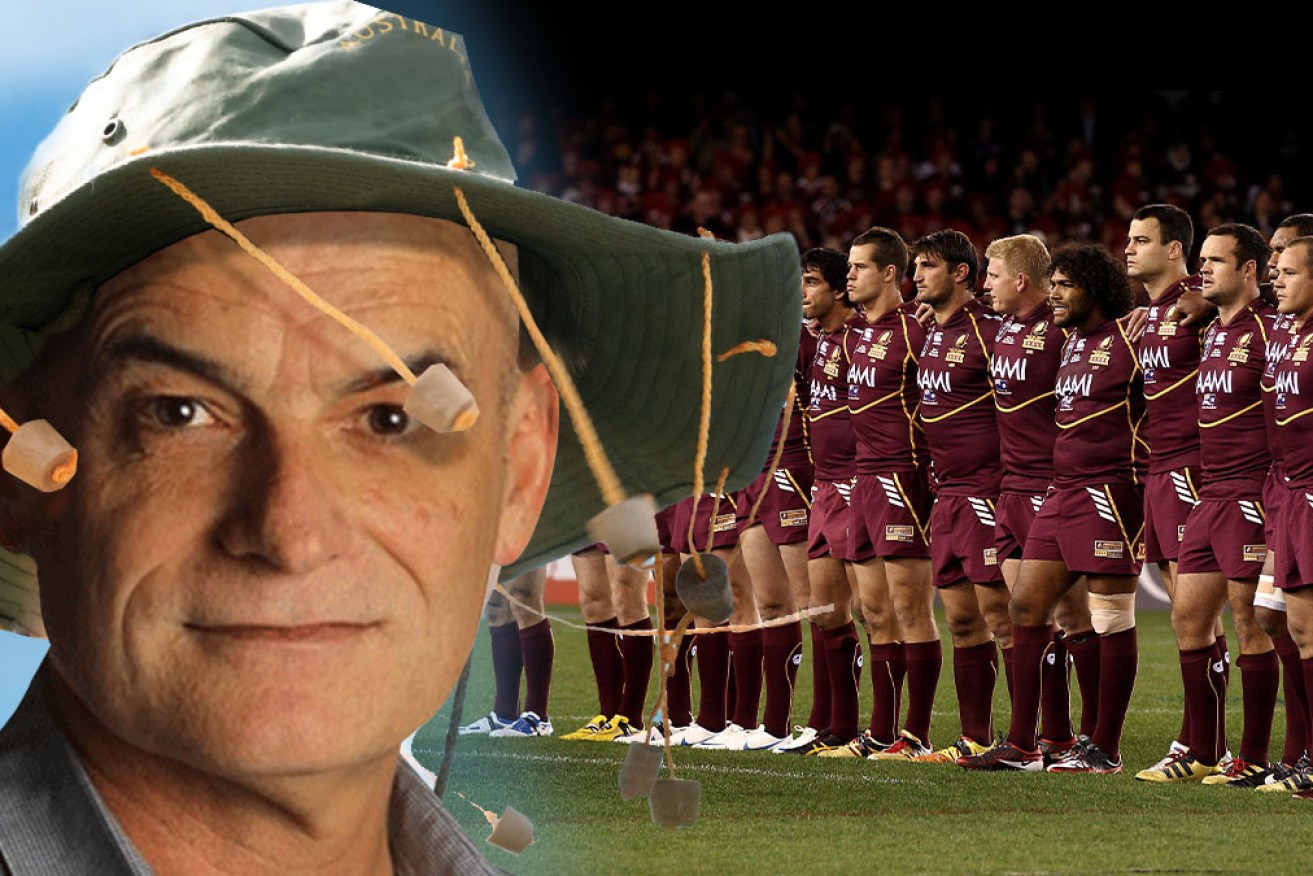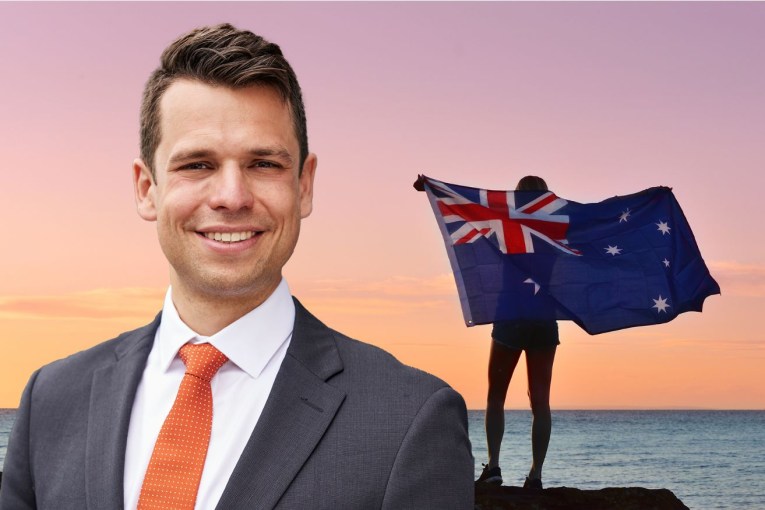Garry Linnell: Advance Australia Fair is just ‘beautiful lies’


The Australian national anthem is aspirational rather than reflective of where we are today, Garry Linnell writes.
Every nation tells lies about itself. It’s how history is made.
Little fibs are buffed and shined and presented as facts. Distortions and exaggerations are given a lick of paint and turned into brightly shining legends.
Even absolute falsehoods can be burnished enough until they are accepted as truths.
We Australians also don’t mind telling the odd whopper. We loved one of them so much, after all, we turned it into our national anthem.
Advance Australia Fair was composed by a well-meaning Scottish schoolteacher more than two decades before the British parliament finally – and reluctantly – allowed the six Australian colonies to join together and become a self-governing nation.
It was a hit from the first time it was played because its receptive white audience, which loved its stirring patriotic appeal, already accepted as fact all the lies the nation had been founded upon.
Apparently many of us – including Prime Minister Scott Morrison – still do.

The NRL abandoned its decision to drop the Australian national anthem at Wednesday’s State of Origin opener.
Last week rugby league’s governing body – attempting to sidestep potential controversy over the opposition of Indigenous players to the song – decided not to play the national anthem before the start of this month’s delayed State of Origin series.
Within two hours Mr Morrison, a passionate rugby league fan, had made a phone call and the decision had been reversed.
For a man who fled to the warmth and safety of Hawaii earlier this year as the rest of the country burned, the superficial “furore” over the NRL’s anthem decision gave him the chance to cloak himself in the flag and once more portray himself as the defender of Australian values.
But exactly what values was the Prime Minister defending?
When Advance Australia Fair first became popular, Australia was a nation of forelock-tuggers who, desperate to rid themselves of the convict stain, would do anything to please their English masters.
In 1895, the acclaimed American writer Mark Twain visited Australia on a speaking tour designed to help him out of bankruptcy.
He was an ardent imperialist at the time (although he later did an abrupt about-face) and he was impressed with the way Australians always deferred to England by calling it “home”.

American writer Mark Twain. Photo: AAP/Mary Evans Picture Library
“It was always pretty to hear it,” Twain wrote.
“Often it was said in an unconsciously caressing way that made it touching … and made one seem to see Australasia as a young girl stroking Mother England’s old gray head.”
This need to bow and scrape helped create what the writer Peter Carey so brilliantly identified in his sprawling novel Illywhacker as the ‘Imaginary Englishman’.
The Imaginary Englishman was a third- or fourth-generation Australian, often with convict origins, who rounded their flat vowels and ponced about wearing gloves, camel hair coats, clipped military moustaches and ties that hinted at vague private school backgrounds.
The Imaginary Englishman believed in the greatness of the Empire.
He drank tea, ate scones and no doubt sang along lustily to Advance Australia Fair, revelling in all the lies about his nation.
He might agree the land itself was ancient. But its original inhabitants? They lacked culture, intelligence and ambition.
“He is a coward,” wrote Twain about the Australian Aboriginal, echoing the views of the colonialists. “There are a thousand facts to prove it.”
More than a century later, Scott Morrison has become the Imaginary Australian.
Of course, the Prime Minister does not hold those same colonial views.
He is certainly not a racist – and he has spoken many times about Australia’s need to reconcile with Indigenous Australians and atone for the mistakes of the past.

Prime Minister Scott Morrison and Indigenous Australians Minister Ken Wyatt announced the targets for the Closing The Gap initiative in July. Photo: AAP
But he is an Imaginary Australian because he clings to an antiquated notion of what an Australian really is, or ought to be.
By raising the spectre of the NRL being “unAustralian” by refusing to play the anthem, Mr Morrison was playing to an audience he thinks truly represents who we are.
The world of the Imaginary Australian is a land where endless frames of Hills Hoists line the horizon, where blokes in their 60s who like to have a beer at the footy wake up to the sound of conservative talk radio, who still recite Paul Hogan jokes at the pub, who like to take the missus for a feed at the local Chinese on a Saturday night after a big win on the ponies.
The Imaginary Australian believes in the myths of Gallipoli. He is still disturbed when men grow their hair below their collar. He thinks there is nothing wrong in playing the national anthem before a sporting event and wonders why Bunnings doesn’t do it every Saturday morning when its doors swing open and the first raw snag is placed on the grill.
The Imaginary Australian doesn’t understand why many consider Advance Australia Fair to be sentimental claptrap from an era we left behind long ago, or that many of his countrymen actually find it offensive and that its lyrics no longer speak to the nation or represent what we have become or aspire to be.
It’s up there with all the other lies we tell the world about ourselves, including that one about us being larrikins who distrust authority and love giving the middle finger to the establishment.
Truth is we are one of the most law-abiding and deeply conservative societies not living in a dictatorship, happy to drown in the regulations and bylaws of the most over-governed nation on the planet.
Twain found Australia’s history curious and strange. “It does not read like history,” he said, “but like the most beautiful lies.”
We’ve come a long way since he visited these shores. An enormous amount has changed for the better.
But some of the lies persist. And sadly, the song remains the same.
Walkley Award winner Garry Linnell is one of Australia’s most experienced and respected journalists and editors








